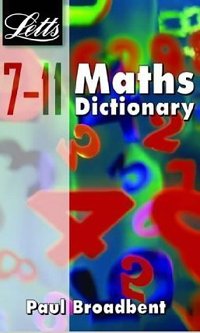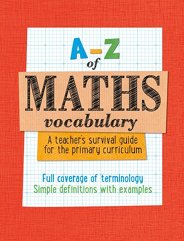Mathematical vocabulary can be such a barrier to children’s understanding and so it seems an obvious thing to point out that a good dictionary for each child isn’t a bad way of helping them out with this. Having ownership of a dictionary so it is their own copy makes a difference. They can leaf through it when they want to, put little marks in it to show which words they look up, add further examples and make it part of their own ‘maths kit’ of resources.
Twelve years ago I wrote the Letts Maths Dictionary which is now out of print. When I wrote it I was aiming it at children’s own use so all of the entries had a clear, concise description or explanation, with an example to put it into context - not just a definition which often simply confuses.
It had a very good review from the ATM (Association of Teachers of Mathematics), which was rather pleasing, ending their review with “Some children were keen to read this book during ‘free reading’ times. What more could you ask for!”
So, have a check in your class. You may have some of my dictionaries (good for you!), but if you haven’t got any maths dictionaries at all then this may be something for you to consider. It has also made me think about updating this and getting it re-published!
A new version of this dictionary was published in 2016 to match the new NC vocabulary list.
The dictionary ensures that teachers know all the vocabulary required for the new curriculum and it is very accessible for children too, with good diagrams and examples. The definitions are written so that teachers can use the explanations for children.
Make your own interactive maths kit
A resources pack for each child to use with oral starters or to help with the main maths focus.




